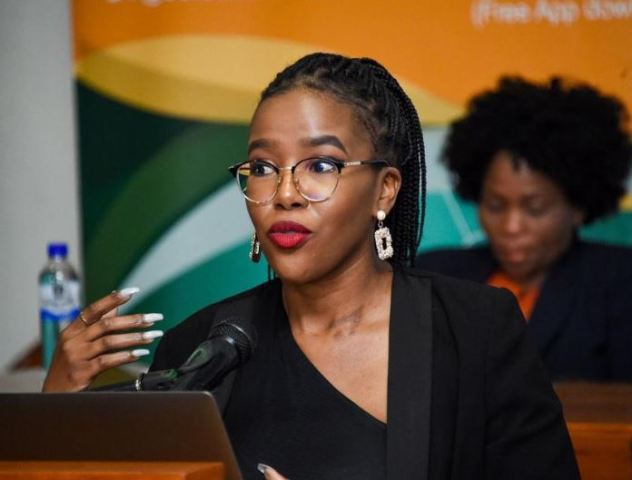Lubisi highlights importance of combating disinformation for democracy
“It’s important to not accept and share information at face value. How we interact with information online needs to echo credibility because when you share information you are influencing the next person,” Lubisi said.

- Country:
- South Africa
Media Monitoring Africa Communications Manager, Nomshado Lubisi, has emphasised the importance of combating disinformation and misinformation as it poses a threat to democratic processes.
Addressing the fourth annual panel discussion for women in the media and communication sectors on Thursday at the Tshwane University of Technology (TUT) Pretoria Campus, she said disinformation could impact the country’s democracy in terms of who citizens put in power and decision making on societal issues.
“It’s important to not accept and share information at face value. How we interact with information online needs to echo credibility because when you share information you are influencing the next person,” Lubisi said.
While social media provides an opportunity to hold power to account, share opinions on societal issues, Lubisi said the very same platform has also given others an opportunity to create a narrative to counter act credible information.
“With disinformation … they are creating deliberate information to cause public harm and this can come in various forms, whether its impacting ones decision to make an informed decision of who to vote for or whether you should take a vaccine or not,” Lubisi said.
She said the COVID-19 pandemic was the perfect storm for disinformation as citizens locally, continentally and globally experienced information overload locally.
Citizens had to make decisions on how to respond to the pandemic and whether to take the vaccine or not.
“We have a public that is overwhelmed, which means a very vulnerable public and that is an opportunity for the public to get confused, anxious and fearful on what to believe and what not to believe.
“Because it has become so sophisticated, it is so difficult for somebody to tell the difference between disinformation and credible information. Now think of somebody who does not even know that disinformation exists.
“WhatsApp is the most dangerous platform to share disinformation because it is direct messaging where you are talking to family and friends. Because of this, it is so easy to trust the information that is being shared,” Lubisi said.
She noted the gaps in digital literacy in the country and with so much information available, how the public may not know how to decipher the information available.
“Media credibility and trust has slightly been on the decline over the past few years because we have been seeing fake news come into the picture,” Lubisi said.
Government Communication and Information System (GCIS) Director General, Phumla Williams, highlighted the role of government communicators who are tasked with informing citizens about government programmes.
“As a government communicator, you carry the hopes of the citizens of this country and you empower ordinary citizens. In the public service we expect you to serve at all times and we expect a government communicator to be consistent,” she said.
Williams said government communicators who switch off their phones to avoid uncomfortable questions from journalists do not help the country.
“I cannot conclude without talking about a gender sensitive journalist. We can only win this fight if your mighty pen is gender responsive. It is a pen that writes with an eye of a young woman or mother or young girl who is abused out there.
“Sometimes I even wish our media houses could have a gender responsive editor who would for those stereotypes that permeates some of their stories without them realising and as long as you understand that when you write that you have that abused woman in that story in mind and not the perpetrator in mind,” Williams said.
The GCIS in partnership with TUT held the fourth annual panel discussion for women under the theme: “A look into the future of communication and journalism in South Africa”.
The panel discussion forms part of the Women's Month celebrations and seeks to create an intergenerational conversation with industry leaders.
Since 2019, the GCIS has been engaging women through this platform on different topics including issues of gender representation, gender-sensitivity in the media, and celebrating women photographers who were at the forefront of covering the COVID-19 story.
In 2021, the discussion focused on how women editors and political reporters successfully navigate these roles.
(With Inputs from South African Government Press Release)
ALSO READ
Kerala's Financial Strife: A Battle for Federalism and Democracy
Jimmy Lai's Landmark Trial: A Battle for Democracy and Justice
We are at intersection of world's oldest democracy and world's largest democracy: US ambassador-designate Sergio Gor.
Hong Kong's Landmark Trial: Jimmy Lai and the Fight for Democracy
Ugandan Election: Democracy Under Siege?










